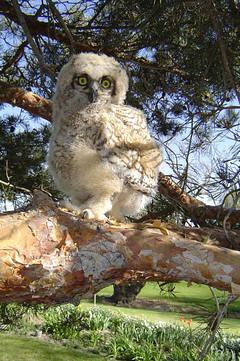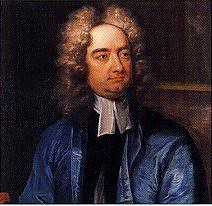TV: Show: Witchcraft and Espionage on your screen
I had t+m to watch whatever was on the channel "Space" today, and up came the show "The Secret Circle" (yes, I had seen episisodes on occasion previously). In this episode "Traitor," a younger set of woud-be good witches are being webbed into the control of an older witch (with aspirations to combine their energies in himself) to become the Grand Master of the coven and the most powerful witch in living memory. The episode, as in the case of the previous I had checked out, was well written, well l+ted and well cinematographed.
But it's worldview was starkly contrastive to the Christian orientation to life and world (which is sadly incompetent yet to compete for TV slots). So, the whole viewing experience set me to reflecting on the apparent dominance on TV of this commercially-viable stream of horror, witchery, vampirey, ghoul, demonism, werewolvery, and suchl+k. Movie features and TV episodes have "developed" to the point where such shows are a staple of our entertainment system in the USA and Canada, to somebody's profit but not necessarily to the TV audience's edification. All in the name of entertainment. As a matter of fact, I suggest that this element is significant in the zeitgeist of our t+mz. It seems to be beyond the ken even of Francis Schaeffer, the well-known Evangelical culture critic of a previous generation, whose most important followers were Chuck Colson (recently deceased, RIP) and Nancy Pearcey (a former student also of Albert Wolters) — she has done some philosophical reflection on Sufism which may possibly have meant that she had to contemplate occultic phenomena from another culture mileu.
Back a little in t+m, the British poet Charles Williams had circulated in the movement of the Golden Dawn circles, but in t+m he came to develop a critique of witchery, distinguishing between good magic and bad. Some of his novels reflect this journey, raise some possibly fruitful questions regarding the narrowness of our mainstream Christian spirituality but take us in a rather supernaturalist direction. A good reformational-philosophical and literary-critical study of Williams contribution has not yet taken place. He became a member of the Christian literary circle "The Inklings," a group that included CS Lewis, JRR Tolkien, Owen Barfield, and Williams, at Oxford University during WWII. Williams died soon thereafter. "The Inklings were literary enthusiasts who praised the value of narrative in fiction, and encouraged the writing of fantasy. Although Christian values were notably present in several members' work, there were also irreligious members of the discussion group," says Wikpedia. Lewis claimed among his literary mentors the Scottish fantasy writer George MacDonald, whose greatest work perhaps is Lilith, while Williams' prose works became best known for what TS Eliot called "spiritual thrillers" (there were 7 of them).
I think that transformaton of the Inklings legacy from text to film woud be further enhanced, following the making of movies based on Tolkien's Lord of the Rings and The Hobbit, and Lewis's Narnia series, were a caring fiancier to produce Williams works l+k War in Heaven, Place of the Lion, Descent into Hell and others. Charles Seper has recently advised us of the Return of the Spiritual Thriller.
“I have always believed that he would have been equally at ease in every kind of supernatural company; that he would never have been surprised or disconcerted by the intrusion of any visitor from another world, whether kindly or malevolent; and that he would have shown exactly the same natural ease and courtesy, with an exact awareness of how one should behave, to an angel, a demon, a human ghost, or an elemental. For him there was no frontier between the material and the spiritual world…He could have joked with the devil and turned the joke against him. To him the supernatural was perfectly natural, and the natural was also supernatural. And this peculiarity gave him that profound insight into Good and Evil.”
I have gone so far in this meditation, becawz I see the zeitgeistliche distance from the end of World War II to the postmodernism of today, where rationality itself is suspect, as the occasion of the rise of today's zeitgeist (whether there are terror wars or no) in which curiosity and appetite for horror and supernaturalism in entertainment is at h+ t+d. I think the Christian writers who have dealt with these themes have something to offer superior to what the secularists and satanists are doing in film and TV today.
Next, if you get a chance, take t+me to view the movie Next, starring Nicolas Cage. For once, he's a good guy, a small-t+m magician who's got a gig in Las Vegas. but nevertheless nevertheless this good=guy role has him drawn into espionage -- or rather, counter-espionage, counter=terrorism, in a govt attempt to stop a nuclear explosion by terrorists (not Muslim or Middle Eastern), who are bent on triggering the warhead in Los Angeles.
The movies signals quite dramatically the rise parallel to the horror and demonic thread, another motif that comes on stream, carried by the impact of Pentecostalism on American life and culture. L+k numerous other movies and TV series, Next points to people gifted with unusual powers. In America and Canada, we're used to this motif is played out in TV shows l+k The Mutants and The X-men — but of course it has a longer, deeper history in entertainment and daily life. I won't spoil Next's story-l+n by detailing what the character played by Cage has as his personal gift.
The mention here of espionage brings us to a further point, I want to mention this round.
————————————————
The other show I watched, Nikita (Canadian-made), comes under the category of espionage entertainment. Thank God that producers have cleaned out the "stars" of the previous editions. Nikita is no long the (platinum) blonde she was, and her collegue is no longer to be seen, he and she being among the most unbelievable I've ever seen — the actors who filled both these leading roles were wet fish, cold as ice, and they did not act so much as pose. A TV episode devoted entirely to poses dwells all too long on those extended still-life moments where the camera dwells on the face and torso, clothed albeit, all too long. In more erotic movies this element enhances the portrayal of the attitude of desire, but not even that quality was present in the old Nikita episodes. It was pornographic without being hot, sexual, or a distillate of longing and desire. Good riddance to the old! And welcome to the new, at least for the t+m being.
— MovieMan, refWrite Backpage movie and TV critic and reviewer

 >br>
>br>









No comments:
Post a Comment